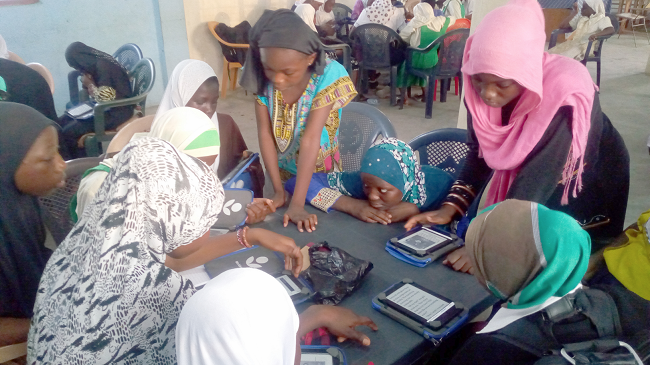
Achievers Ghana promotes girl-child education in slum areas
Achievers Ghana, a local non-governmental organisation (NGO), is investing in girl-child education in slum areas to help them attain the highest level in formal education through an after-school programme.
Advertisement
Located within the Maamobi community in Accra, the NGO has currently registered 350 girls on the programme.
Among other activities, it also builds the capacity of the girl-child in slum communities as its contribution to add up to the human capital and hence the development of Ghana.
The NGO engages in reading sessions, information and communications technology (ICT), leadership and mentorship development, as well as community advocacy.
Its major sponsor is the RYTHM Foundation (RF), a United States (US)-based NGO, which through its partnership with Worldreader, funded an e-reader project for the organisation by sponsoring 50 Kindle e-readers, an electronic device pre-loaded with 100 books.
Focus of the NGO
Currently, the NGO offers scholarship to all the 350 girls in various basic schools and senior high schools.
“Our main objective is to inspire, educate, and equip girls in slum communities with the necessary skills to pursue every opportunity that is available to them in order to be responsible and useful citizens,” the Director of Achievers Ghana, Mr Amadu Mohammed, told the Daily Graphic.
He said the NGO intended to achieve its objective through the use of a variety of educational approaches to build knowledge, skills, and self-confidence in the girls.
“This includes advocating change through increasing public awareness and influencing attitudes in support of women’s and girls’ human rights and also, using technology to advocate, connect, and increase awareness of key issues affecting girls and to support girls in slum communities that are constantly learning, mobilising and evolving,” he said.
Mr Mohammed explained that the organisation invited females who were professionals to share information on their career paths, professional and personal lives, and why they thought their careers were interesting.
“Meeting and hearing from role models that girls can relate to is invaluable in sparking their interest in various careers,” he said.

Background
Giving a background that led to the establishment of the NGO, Mr Mohammed noted that most women and girls in the slums of Accra did not often get the necessary support that was required from their families or communities to attain quality education.
“Some of these girls who are lucky to find themselves in the classroom are there without a purpose. Probably, they are sent there just to pave the way for the parents or family members to have the peace of mind at home and not with the intention to develop a career out of it or to be responsible.
Girls are disadvantaged
“When families do not have the financial resources to provide quality education to all their children, they prefer to give more education to the boy-child. Because most of the women are not educated, they are unable to provide quality education for their daughters.
“So slum-based women and girls are trapped in a vicious circle, and the education of the girl-child is neglected. The girls find it very difficult to get quality basic education. They do not have a positive supportive environment and attention that is required,” he said.
Mr Mohammed explained that girls in slum communities did not get the right environment where they could gather and learn on their own, especially after school.
He said without support for their education at school, at home, or in their neighbourhood, many girls were lacking even basic literacy and numeracy skills.
“Many girls and young women in the slums are generally less educated, less healthy, and less free than their male peers.
Basic rights
“They do not enjoy the basic rights and protections of citizenship, including the right to reach maturing age, attend school, access healthcare services and information, hold certain jobs, stop unwanted sexual advances, or obtain justice for sexual assault and abuse,” Mr Mohammed explained.
He added that because of their lack of economic opportunity and the social norms disfavouring them, girls and women were often regarded as less worthy of investment or protection from their families, resulting in early marriage and motherhood.
Mr Mohammed was of the opinion that investment in girls’ education, health, protection from violence and economic opportunity enabled them to realise their human rights, adding that for too long, girls in the slums had been kept in the background.
More slum girls need help
Mr Mohammed said there were still a number of such girls around not benefiting from the programme and appealed for support from corporate bodies to “get many other girls who are there waiting to be helped out of bondage.”
He said the organisation was inundated with calls and appeals to extend its activities to other slum communities in the country, “but we are handicapped and your contributions and donations will make this possible.”
He was grateful to the RYTHM Foundation and other individuals who had contributed over the past six years since the establishment of the organisation and assured them that their investment was for a good course.
Successes
Mr Mohammed said because of the good works of the organisation, within its six years of existence, it had chalked up a number of successes, including the Most Outstanding NGO at the Nima Excellence Award in 2016.



